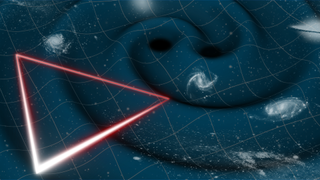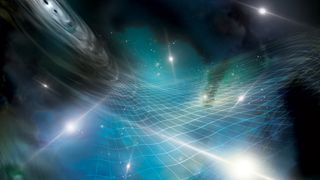Gravitational Waves: The latest discoveries and star crash news
Latest about gravitational waves
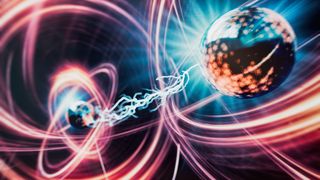
What is quantum gravity?
By Elizabeth Fernandez last updated
Quantum gravity is an attempt to unite the incompatible worlds of quantum mechanics and gravity. We explore it in more detail here.

'Physics itself disappears': How theoretical physicist Thomas Hertog helped Stephen Hawking produce his final, most radical theory of everything
By Ben Turner published
Thomas Hertog tells us how he collaborated with Stephen Hawking on his final theorem — a Darwinian revolution in physics that explains the origin of time.
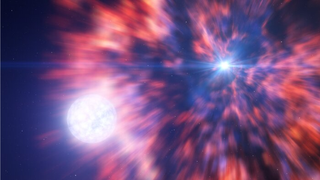
The universe’s biggest explosions made some of the elements we are composed of. But there’s another mystery source out there
By Robert Brose published
More-or-less all elements heavier than helium were produced in the 13.8 billion years between the Big Bang and the present day.
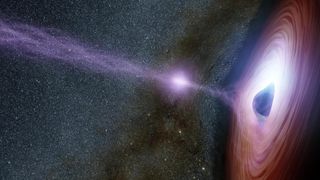
Black holes are mysterious, yet also deceptively simple − a new space mission may help physicists answer hairy questions about these astronomical objects
By Gaurav Khanna published
For years, physicists have been looking to prove that black holes are more complex than they seem. And a newly approved European space mission called LISA will help us with this hunt.
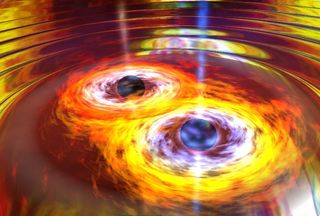
Black hole collision 'alerts' could notify astronomers within 30 seconds of detection
By Robert Lea published
Astronomers will be alerted to gravitational waves faster than ever before as LIGO and other detectors "listen" to a universal symphony.

Exploding stars send out powerful bursts of energy − I'm leading a citizen scientist project to classify and learn about these bright flashes
By Amy Lien published
Swift is a multiwavelength space telescope that scientists are using to find out more about these mysterious gamma-ray flashes from the universe.
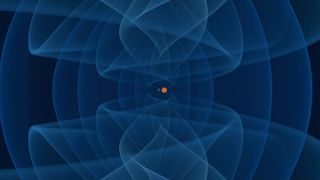
Gravitational waves reveal 1st-of-its-kind merger between neutron star and mystery object
By Sharmila Kuthunur published
The mystery object, which falls right within the mass-gap range, sheds light on a long-sought, murky realm.
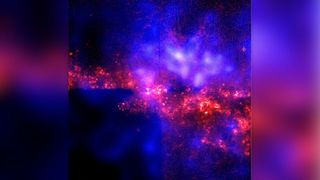
Dark matter could be gently wobbling space-time around us — and scientists may finally know how to detect it
By Andrey Feldman published
A new paper suggests we may finally be able to uncover the identity of dark matter using the same technology that detects ripples in space-time known as gravitational waves.
Breaking space news, the latest updates on rocket launches, skywatching events and more!
